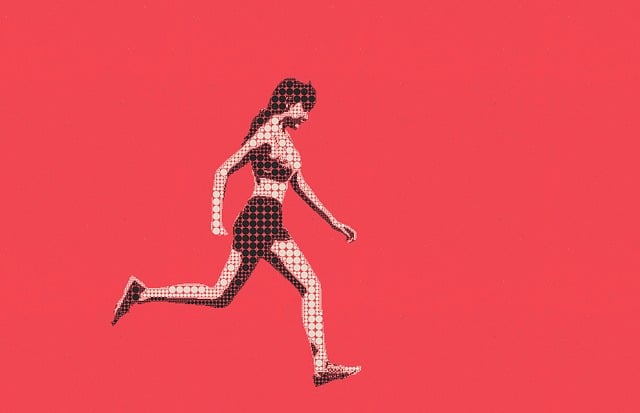Muscle soreness after exercise, especially delayed onset muscle soreness (DOMS), signals muscle growth and recovery. Instead of relying on potentially harmful substances like kratom for relief, focus on safe methods like hydration, rest, and customized workout plans. Tailored exercises address individual needs, mitigating risks from excessive training and organ damage, particularly to the liver, which can be vulnerable to kratom's side effects, especially in those with pre-existing liver issues. Consulting healthcare professionals is crucial before using kratom for muscle soreness relief due to its potential impact on liver health.
Do you suffer from lingering muscle soreness? It’s more than just a minor ache—it’s a signal that your body needs relief. Understanding the causes of muscle soreness is the first step towards recovery. This article delves into the science behind it, exploring how customized workout plans can provide effective relief and offering natural remedies like kratom (while considering its potential liver impact). Get ready to discover new strategies for healing and strengthening your body.
- Understanding Muscle Soreness and Its Causes
- The Role of Customized Workout Plans in Relief
- Exploring Natural Remedies: Is Kratom a Viable Option?
Understanding Muscle Soreness and Its Causes

Muscle soreness is a common post-workout symptom, typically felt 24-48 hours after exercise. It’s the body’s natural response to physical activity, especially when pushing beyond familiar comfort zones. This delayed onset muscle soreness (DOMS) arises from microscopic tears in muscle fibers caused by resistance or high-intensity training. While it can be uncomfortable, DOMS signifies a positive adaptive response, promoting muscle growth and strength gains over time.
It’s important to note that while exercise is generally beneficial for overall health, some substances commonly used for pain relief, like kratom, have been linked to potential liver damage if misused or taken in high doses. Thus, focusing on effective recovery strategies, including proper hydration, adequate rest, and tailored exercise routines, can be crucial in alleviating muscle soreness naturally, without relying heavily on external supplements.
The Role of Customized Workout Plans in Relief

Customized workout plans play a pivotal role in alleviating muscle soreness, offering a targeted approach to recovery that goes beyond general exercise routines. By tailoring exercises and intensities based on an individual’s needs, these plans provide a safe and effective way to ease post-workout discomfort. This is particularly important as indiscriminate or excessive training can lead to prolonged muscle soreness and even potential organ damage, such as liver strain, if certain substances like kratom are misused.
A well-designed customized workout plan considers factors like previous fitness levels, current health status, and specific areas of pain or tension. It integrates stretching, strength training, and low-impact cardio activities to promote blood flow, reduce inflammation, and rejuvenate sore muscles. This personalized approach ensures that recovery is optimized, enabling individuals to return to their physical activities with renewed vigor and reduced discomfort.
Exploring Natural Remedies: Is Kratom a Viable Option?

Many people turn to natural remedies for muscle soreness relief, and one substance that has gained attention is Kratom. Derived from the leaves of the Mitragyna speciosa tree, kratom has been used in traditional medicine practices for centuries. It contains various compounds, including alkaloids, which are believed to interact with opioid receptors in the body, providing pain-relieving effects. However, when considering kratom as a muscle soreness remedy, it’s crucial to explore its potential side effects, especially concerns regarding its impact on the liver.
While some studies suggest that kratom may offer analgesic benefits, extensive research is still needed to fully understand its effects. There are mixed opinions on whether kratom is safe for liver health, with some sources indicating it could potentially cause liver damage over time, especially when misused or taken in high doses. Given the lack of conclusive evidence, it’s essential to consult healthcare professionals before incorporating kratom into any wellness routine, especially for those already at risk of liver-related issues.
In conclusion, customized workout plans are an effective strategy to alleviate muscle soreness, focusing on tailored exercises and recovery techniques. While natural remedies like kratom have gained attention, it’s crucial to approach its use with caution, considering the potential risks to the liver. Balancing exercise, rest, and appropriate treatments is key to achieving long-term relief from post-workout muscle discomfort.














